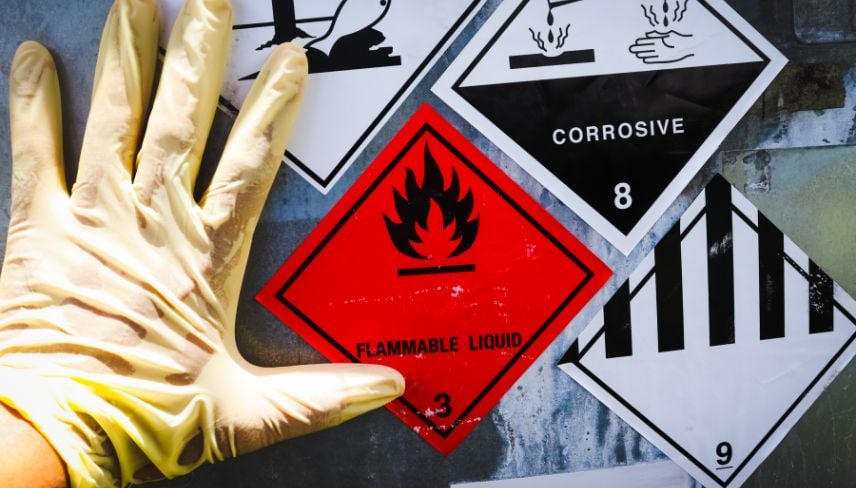Understanding India’s Manufacture, Storage, and Import of Hazardous Chemicals Rules, 1989

09 Oct 2024
Implemented under India's Environment (Protection) Act, 1986, these rules protect health and the environment from chemical hazards.
The Manufacture, Storage, and Import of Hazardous Chemical Rules, 1989 (MSIHC), established by India’s Ministry of Environment, Forest and Climate Change, are crucial regulations governing the safe handling, storage, and import of hazardous chemicals in India. These rules were implemented under India’s Environment (Protection) Act, 1986 to safeguard human health and the environment from chemical hazards.
Why Were These Rules Introduced?
Industries that deal with hazardous chemicals present significant risks to workers, the public, and the environment. The MSIHC Rules mitigate these risks through strict control measures. They provide a structured framework for industries to identify, store, and transport hazardous chemicals safely while ensuring necessary precautions are taken to avoid accidents.
Key Aspects of the MSIHC Rules
- Classification of Hazardous Chemicals:
Hazardous chemicals are classified based on their properties and potential risks. The classifications include:
- Toxic Chemicals: These are chemicals that can cause significant harm due to their acute toxicity levels, categorized into groups such as extremely toxic, highly toxic, and toxic based on oral, dermal, and inhalation toxicity values.
- Flammable Substances: This includes various flammable materials, such as flammable gases, extremely flammable liquids, and highly flammable liquids, classified by their flash points and quantities that pose risks.
- Highly Reactive Substances: These chemicals can undergo rapid reactions, potentially leading to explosions or other hazardous situations. They require careful handling and specific safety measures to mitigate risks associated with their reactivity.
Chemicals are listed across Schedules 1, 2, and 3, with the most dangerous chemicals being listed in Schedule 1.
-
Duties of the Occupier:
The "occupier," or the person in control of an industrial activity, must take adequate steps to prevent accidents and limit their consequences. The occupier is responsible for informing individuals outside the site about potential major accident hazards and safety measures, both before commencing new industrial activities and within 90 days of existing ones. Additionally, the occupier must prepare and maintain up-to-date safety reports and on-site emergency plans, detailing how major accidents will be managed. A crucial part of this responsibility is identifying major accident hazards and implementing adequate preventive steps. This includes providing essential information, training, and equipment to workers to ensure their safety and mitigate the impact of any accidents.
- Safety Reporting:
Industries handling hazardous chemicals are required to prepare a comprehensive safety report that outlines the potential hazards, safety precautions, and emergency response plans for their operations. This report must be submitted to the relevant authority at least 90 days before starting any industrial activity. Additionally, the safety report must be regularly updated, especially when modifications to the activity could impact safety. Any significant changes must be reported to the authorities with an updated safety report in advance. Furthermore, occupiers must conduct annual safety audits, and the results, along with any recommendations, must be submitted to the authorities.
- Emergency Planning:
Emergency planning for hazardous chemicals involves several critical steps to ensure readiness in the event of an accident. Occupiers must develop both on-site and off-site emergency plans that outline detailed procedures for responding to major accidents, specifying the roles and responsibilities of key personnel, communication strategies, and coordination with local emergency services. To ensure these plans are effective, occupiers are required to conduct mock drills periodically, testing the plan's functionality and ensuring that all personnel are familiar with their roles during an emergency. Additionally, the occupier needs to disseminate information about the emergency plan to all employees and individuals who may be affected, providing training and resources to enhance preparedness and ensuring that everyone understands the potential hazards and appropriate actions to take in case of an emergency.
- Import of Hazardous Chemicals:
The import of hazardous chemicals is strictly regulated, with several key requirements to ensure safety. Importers are required to notify the relevant authorities at least 30 days before the import, providing detailed information such as the name and address of the recipient, port of entry, mode of transport, quantity, and comprehensive product safety data. In cases where the authorities believe that the chemical may pose significant risks, they can mandate additional safety measures or, in some cases, prohibit the import altogether based on safety or environmental concerns. Additionally, importers must maintain thorough records of all hazardous chemicals brought into the country, making them available for inspection by authorities. This ensures that proper safety protocols are followed during the transport and storage of these substances, aligning with India's commitment to environmental protection and public safety.
The Importance of Compliance
Failure to comply with the MSIHC rules can lead to significant consequences, including legal penalties, environmental harm, and reputational damage. By adhering to these regulations, industries not only safeguard their workforce but also play a crucial role in protecting public health and the environment from chemical hazards. Compliance minimizes the risk of accidents and exposure while ensuring that companies meet legal requirements, thus avoiding fines or litigation. Furthermore, consistent adherence to safety regulations enhances a company’s credibility, fostering trust among stakeholders, customers, and the community, which in turn can open doors to better business opportunities and partnerships.
Conclusion
The MSIHC Rules play a vital role in ensuring the responsible management of hazardous chemicals in India. By enforcing stringent guidelines on the handling, storage, and transport of these chemicals, the rules aim to prevent accidents and reduce their impact. For industries dealing with hazardous substances, understanding and complying with these rules is essential for safe and sustainable operations.
